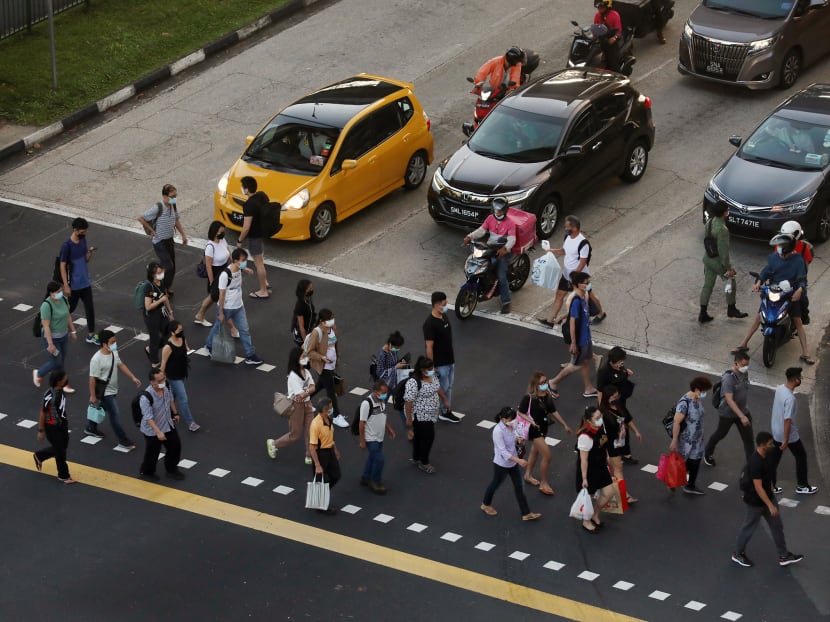Budget 2022: Building a sustainable Singapore economy in a post-pandemic world
What does it mean for the Singapore economy to be sustainable? According to the United Nations, there are three main pillars to achieve sustainable development — economic, social and environmental.

What does it mean for the Singapore economy to be sustainable?
According to the United Nations, there are three main pillars to achieve sustainable development — economic, social and environmental.
Finance Minister Lawrence Wong covered all three pillars when he delivered the Budget 2022 statement on Friday (Feb 18).
In a comprehensive budget, the Singapore Government has announced plans to develop a green economy and strengthen its social impact.
This is an important step forward as Singapore charts its path in a post pandemic world. We welcome the new policies.
Nonetheless, in implementing the policies, there are several key challenges that need to be considered.
TOWARDS A GREEN ECONOMY
To support environmental sustainability, the Singapore Government has taken the lead. It has proposed to increase the carbon tax to S$25 per tonne from 2024, up from the current tax of S$5.
In addition, the public sector will support the development of green bonds by issuing up to S$35 billion in green bonds.
This is a win-win situation for the Singapore Green Plan. Besides allowing Singapore to reach its long-term net-zero emissions goal earlier, this provides a great opportunity for the country to develop its green financial hub.
However, the Government cannot do it alone. Without the support of workers with the necessary skills and companies, the plan will be derailed.
For the ecosystem to work, there has to be a pool of sustainability professionals in the private and public sectors.
Regulators and bankers will need to be equipped with the technical know-how to evaluate policies and assess risk.
This cannot be achieved overnight. Careful consideration relating to training and development is required.
The recent launch of a new Masters degree in Sustainable and Green Finance by the National University of Singapore aims to nurture and empower a new generation of talents in contributing to business and financial sectors in shaping a greener economy ahead.
More can be done by other industry and education stakeholders. A mindset change is also needed for everyone to work collectively towards a green and sustainable economy.
TOWARDS A MORE EQUAL SOCIETY
We turn to the social and economic pillars.
Mr Wong announced several plans to achieve a more equal society by supporting more needy families and increasing taxation of the wealthy.
The Government will spend S$9 billion over five years to uplift and help lower-income workers.
This will go towards enhancing the Workfare Income Supplement scheme, which will be extended to younger workers, and a new Progressive Wage Credit Scheme to support businesses moving towards the Progressive Wage Model.
As announced previously, the Progressive Wage Model will be extended to more industries. This includes the retail, food services and waste management sectors.
In addition, households will receive additional support in the form of U-Save rebates, Community Development Council Vouchers and Goods and Services Tax (GST) Vouchers in the next few years.
On the other hand, there are higher taxes for the richer households. This takes the form of an increase in personal income tax for top earners, as well as higher taxes for non-owner-occupied residential properties and luxury vehicles.
While these policies can alleviate the income gap in the short run, there are several considerations.
First, the Covid-19 pandemic has impacted the way we work, live and play. For instance, it sped up automation as firms substitute capital for labour.
It is instructive to see how workers respond and adapt to the requirements of the Progressive Wage Model.
Furthermore, the increase in labour cost for companies could lead to firms making losses and shutting down instead, leading to job losses.
While the Singapore Government is proposing to co-fund wage increases till 2026 in the new Progressive Wage Credit Scheme, firms need to show that they are adaptable and can manage the prices.
For the richer households, they will be required to pay off more taxes. Nonetheless, the extent to which they are affected depends on their source of wealth.
With corporate tax unchanged, and no wealth taxes such as capital gains tax or estate duties, richer households who benefited from an increase in financial asset wealth are not impacted.
Will this policy change influence richer households to rebalance their portfolios from real assets to financial assets?
OPTIMISTIC FUTURE
Overall, we believe that Budget 2022 is well thought out and sound. This is especially so in a challenging economic environment with high inflation.
For one thing, it clearly delineates the key challenges of Singapore’s fiscal position and proposes ways to overcome it.
The budget states that government spending is expected to increase in Singapore. For example, healthcare spending will be increased to meet the needs of the ageing population.
Nonetheless, the timing of the increase in taxes to support the spending needs has been carefully considered.
As the GST will be raised to 8 per cent from 2023, and then 9 per cent from 2024, it will alleviate short-term inflationary pressures.
From the different facets of Budget 2022, we are highly optimistic of the economic, social and environmental sustainability of Singapore’s economy.
However, the success of these policies is highly dependent on the implementation of the policies, and how households and firms respond.
ABOUT THE AUTHORS:
Sumit Agarwal is the Low Tuck Kwong Distinguished Professor of Finance, Economics and Real Estate at the National University of Singapore (NUS) Business School, and the managing director of the Sustainable and Green Finance Institute at NUS. Chua Yeow Hwee is a research fellow at the Nanyang Technological University and honorary assistant secretary of the Economics Society of Singapore. These are their own views.






